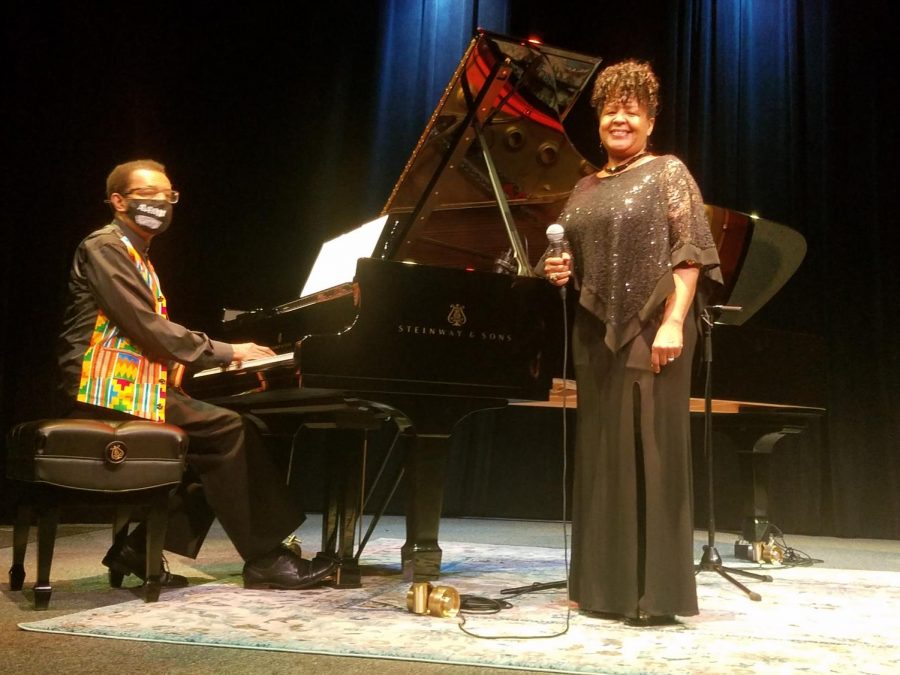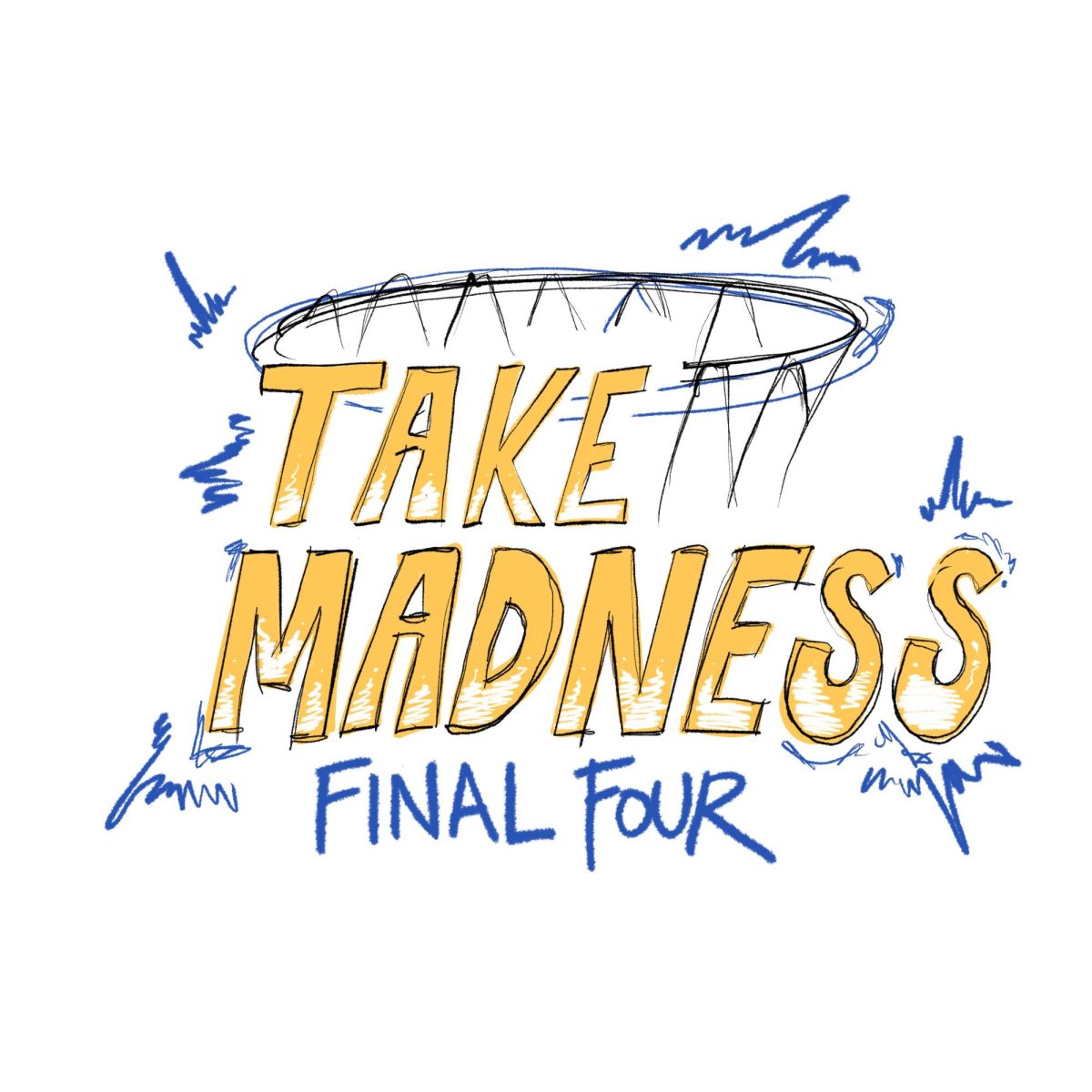Pitt Jazz Seminar features performances, speakers to honor founding figures
Photo courtesy of Frank Hammond
The jazz studies department chose to move this year’s annual Jazz Seminar online due to COVID-19.
November 4, 2020
While the annual Pitt Jazz Seminar and Concert has conducted powerful performances and brought together influential speakers for 50 years, this year’s all-virtual program distinguishes itself by highlighting the legacy of the founding figures of Pitt’s jazz studies department.
Geri Allen and Nathan Davis, two prominent jazz artists and educators with roots in Pittsburgh, are the focus of a series of performances and talks at this year’s 50th anniversary celebration of the annual Pitt Jazz Seminar. The seminar began its first performance this year on Monday and concludes its week of festivities Saturday with the Pitt Jazz Faculty Showcase.
Pitt’s jazz studies program, which is one of the oldest in the nation, owes much to the legacies of both Allen and Davis, who were instrumental in developing the department and extending its outreach to Pittsburgh’s jazz scene. Davis founded the annual Pitt Jazz Seminar and Concert in 1970 as a way to showcase the life and culture behind the genre and bring together jazz enthusiasts from across Pittsburgh.
The jazz studies department originally planned for a large celebration to highlight the history of the program and the legacy of its founders through a series of symposiums and talks from artists influenced by the works of Davis and Allen. But with the unprecedented impact of COVID-19, the committee decided to move the annual Jazz Seminar to a fully virtual platform.
This was not without its challenges, as program organizers had to start from scratch and rethink the entire event. Frank Hammond, a jazz studies program assistant who also serves as one of the event’s main coordinators, said the transition online proved much more difficult than anticipated. Hammond said he and Nicole Mitchell Gantt, head curator for the seminar and William S. Dietrich II Endowed Chair in Jazz Studies, had to make last-minute changes.
“For me, the Jazz Seminar planning starts in January. But COVID forced us to push pause on everything, and we had to restart in August to replan everything,” Hammond said. “Something that usually takes six to eight months, Nicole and I had to redo in three months.”
According to Hammond, moving the event online had additional difficulties regarding adapting to webinar hosting software, learning new copyright rules and coordinating events and symposiums with artists performing in different areas. But there were also several unforeseen benefits to performing solely online.
Michael Heller — an associate professor of music and co-organizer of the Cyber Symposium for Allen, alongside Columbia professor Ellie Hisama — said he believes that hosting this year’s program online created new opportunities for a variety of artists to come together and perform.
“It’s been very hard for the seminar as a whole, but a certain silver lining is that we can offer an absolutely incredible lineup of speakers that we probably wouldn’t have been able to assemble if we were bringing everyone on campus,” he said. “Almost everyone who we approached about participating in the symposium said yes.”
This year’s lineup of speakers and performers features renowned jazz artists, educators and activists like Terri Lyne Carrington, Gina Dent, Angela Davis, Vijay Iyer and Dwayne Dolphin. Gantt said she anticipates a larger audience than usual to enjoy this year’s program.
“Everything is online rather than in-person. This also means that we can have an international audience for the first time,” Gantt said. “Also, this will be the first time that the culminating concert, featuring international artists, will be free to the public.”
The seminar’s speakers and performers will largely discuss the impact of Allen and Davis on the jazz scene. Monday’s panel event honored Davis’ legacy on both Pitt and the international jazz community and featured guest speakers who were once students of Davis himself. A virtual symposium on Thursday will honor Allen while also serving as a launch for a special issue of Pitt’s journal “Jazz and Culture” focusing solely on Allen.
Hammond said he believes the influence that Davis and Allen continue to have upon the jazz community is due to their involvement with the Pittsburgh community.
“Geri and Nathan have extended their outreach and influence toward many, especially toward the Black community at Pitt in particular,” Hammond said. “Nathan created basically everything — the archives, scholastic journal and the student jazz ensemble. Geri did the telematic symposium and headed the project for the Erroll Garner archives.”
While this year’s seminar is different from any other, Gantt and the other organizers of the program are confident the program will still run successfully. In fact, although much has had to change in order to host the performances, Heller said he believes these changes have the possibility to enhance the theme of the jazz performances itself.
“Things are going to be changed. And there is a sense in which that is not something that is new in terms of artistic creation and in terms of jazz creation,” Heller said. “Jazz creation is usually rooted in a real-time, face-to-face interaction on stage, but part of that real-time interaction and the glory of jazz is that things come unexpectedly, and you’ve got to react.”
Gantt said she is glad the seminar can still occur this year, and is most looking forward to the concerts honoring Davis and Allen at the end of the week.
“I’m very proud that we were able to weather the storm and still offer the Pittsburgh jazz community a wealth of great experiences in celebration of our 50th anniversary,” Gantt said. “I’m personally excited to see the Friday and Saturday night concerts unveil as premiering performances full of surprises and great musical movements.”



